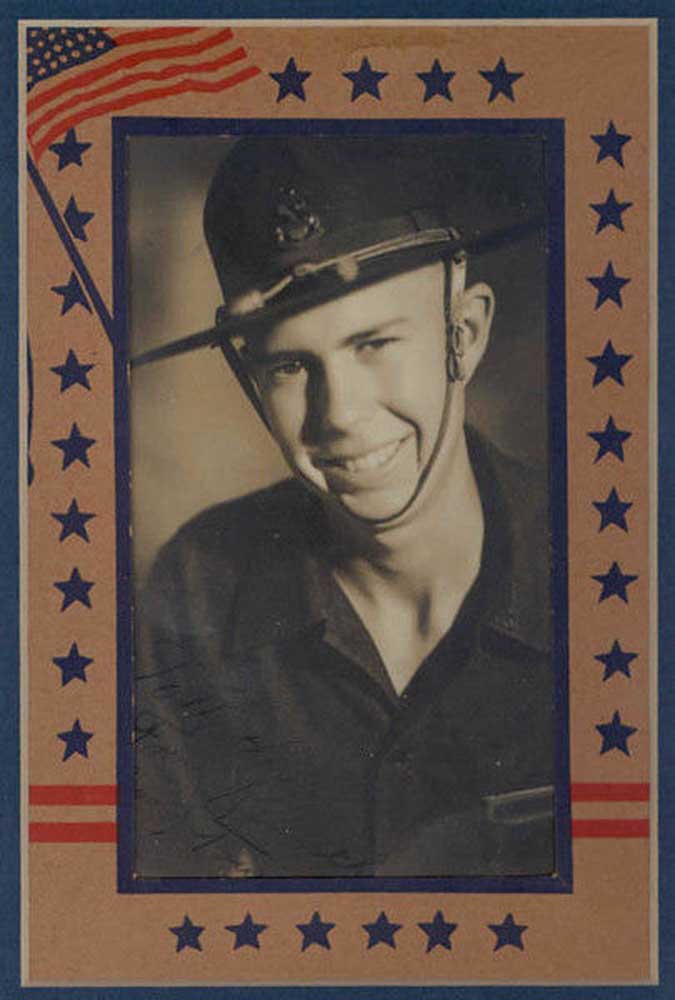Ken Towery: Journalist tells tales in memoir, ‘The Chow Dipper’
Published 11:04 pm Friday, January 3, 2014

- Courtesy Ken Towery
Editor’s note: This is the last in a four part series. Longview’s Dr. John Coppedge grew up in Cuero, where he first became aware of the remarkable life story of Ken Towery, former Japanese prisoner of war, winner of the Pulitzer Prize and adviser to politicians and presidents. In this last of four parts, Coppedge takes us to Towery’s Austin home — and reflects on the Texan’s influence over the decades.
In the mid-1990s, Ken and Louise Towery returned to Texas from Washington, D.C., and to the work he loved the most — in the newspaper business.
Towery purchased a trio of small-town Texas newspapers, the Floyd County Hesperian and The Lockney Beacon and the Crosby County News-Chronicle. He now is fully retired.
But Towery has rewarded us with his memoirs — a book entitled “The Chow Dipper.”
In the book’s foreword, conservative icon William F. Buckley wrote: “Towery was an utterly committed anti-Communist and anti-socialist. … All those who were ever associated with him were elevated by the experience: and like so many others, will enjoy and profit from reading his political odyssey.”
The book is really three books in one. The first part is about growing up in South Texas, his World War II experiences as a soldier and one of the few survivors of the Japanese POW camps.
The second part is about learning the newspaper business and winning the Pulitzer Prize by uncovering and reporting corruption in government.
The third part is the tale of his 40-year odyssey through Texas and national politics. He shares anecdotes about Lyndon Johnson, Paul Eggers, Ralph Yarbrough, Jack Cox, Rita (Bass) Clements, Sam Rayburn, Bill Clements, Clayton Williams, Ted Kennedy, Will Wilson, Allan Shivers, John Connally, Waggoner Carr, Ben Barnes and Price Daniel, among others.
He also shares many insights into the man he worked for and with for so many years — John Tower. Towery spares few he thinks deserve criticism, but that criticism is muted except in the case of Tower’s second wife, Lilla. He gives those with an interest in such matters a peek behind the curtain that answers many questions about the who, what, when, where and why surrounding campaigns and events that have shaped our state and nation.
For students of the political process, the book should be required reading.
Nearly a year ago, the day after his 89th birthday, I visited Ken and Louise. Their home just south of downtown Austin is in a quiet neighborhood. Oak trees shade the house.
Louise tends her pepper plants on the front porch and, as always, looks out after Ken. He hand feeds the doves that gather on the back patio.
As he took me along on a walk down his personal memory lane, I was struck by the fact that he, like most of his generation, downplays his part in World War II, says his actions were not particularly heroic and he was simply doing what had to be done. He exhibits that same self-effacing modesty when reflecting on all of his subsequent accomplishments.
Many of the things we talked about are in his book. Some of them were mentioned in this series. One that was not in the book, and according to Towery has never been published, is worth reporting. He relates it with a bemused chuckle.
It happened in the days after Tower had won the special election to fill the U.S. Senate seat vacated when Johnson became vice president in 1961.
Tower and his staff arrived at the vacant office assigned to the junior senator from Texas. They began the process of requisitioning desks, chairs, filing cabinets and other furnishings to set up the office.
The last filing cabinets that had been turned in to the Senate storeroom had been in Johnson’s office. They were the ones sent to Tower.
Much to his surprise, Towery said, he found they still contained Johnson’s old papers and correspondence. When he reported this to his boss, the newly minted senator replied they should send the papers back without reading them. As Towery recalled it, Tower’s words were: “A gentleman does not read another gentleman’s mail.”
Towery said he’s certain such honorable behavior would never occur in today’s U.S. Senate. He sent the papers back unread. Such civility and respect for the institution was eventually cruelly rewarded when the Senate voted to reject John Tower’s nomination as Secretary of Defense.
All Texans and all Americans owe a great debt to Ken and Louise Towery for their service to our nation.
Towery, now nearing his 90th birthday, says he has already selected his spot in the Texas State Cemetery and the inscription for his tombstone.
It will read: “THE CHOW DIPPER,” because, he says, that experience is the one from his long life of which he is most proud. We hope he takes his own sweet time in making use of it.
Growing up in Cuero, I witnessed the stir occasioned by the “Veteran’s Land Scandal” story and knew all the folks mentioned in that section of “The Chow Dipper.” I knew that Ken Towery had won the Pulitzer Prize at the Cuero Record — it was a source of great pride for such a small town. But it was only recently that I learned all the rest of his story and felt it a story worth telling.






